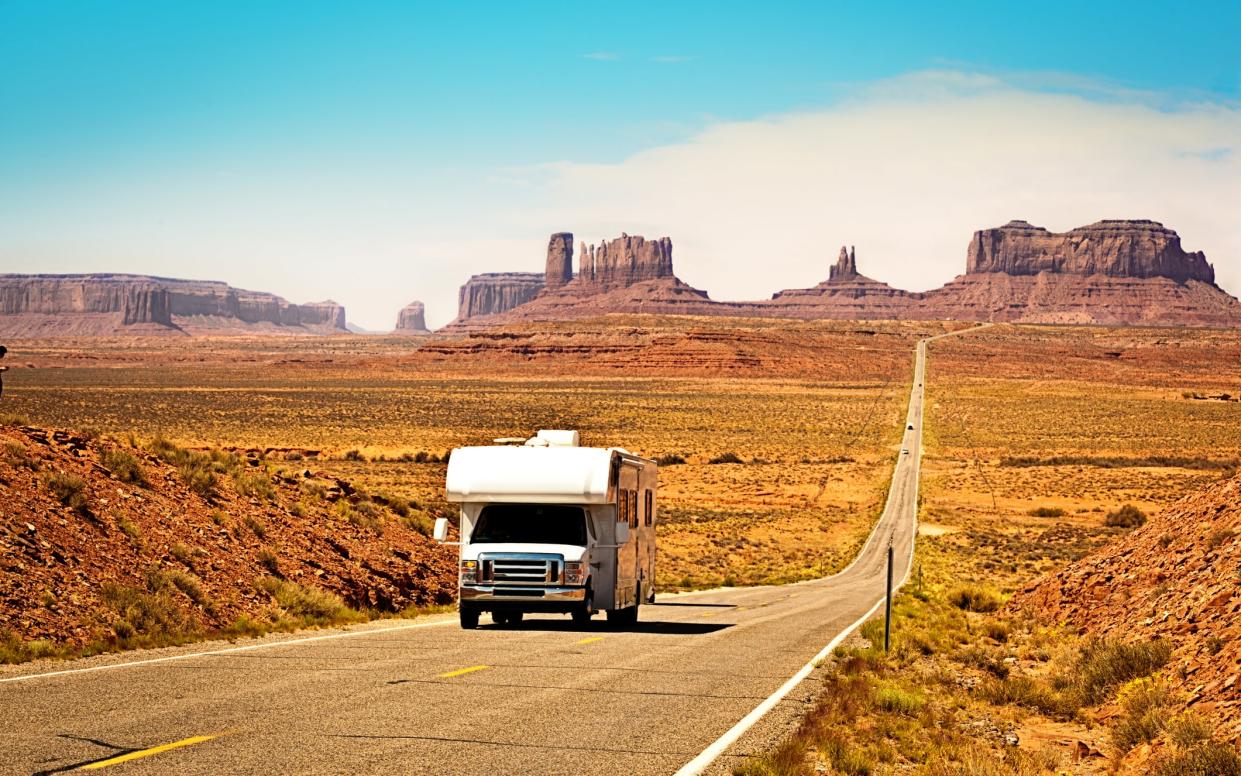The rise of the RV: How motorhome holidays became cool again

Robin Williams was on to a good thing with his 2006 comedy film RV, which mercilessly lampooned the idea of recreational vehicle holidays in America as lowbrow, high-risk and downright dangerous. The last laugh, however, is with a business currently experiencing the biggest boom in camping vacation history, having hit a record $20 billion (£15.3 billion) in sales on the back of eight years of growth.
In simple terms, RVing has never been more popular in the US, and it’s increasingly tempting for visitors who want to see a lot in a short time but still in a great deal of comfort. For, while the rustic vehicle that Williams drove in his comic caper creaked at the seams, the modern RV is a multi-splendoured thing that comes in many shapes and sizes, has just about every home comfort imaginable, and is perfectly suited to holidays in the great outdoors.
To start with, there are eight types of RV, from the humble folding trailer to the mega-sized class A motorhome, a road-going monolith up to 45ft long that can sleep seven and offers everything from satellite television to multiple bathrooms. At the touch of a button, the sides slide out to create masses of living space, and many have an exterior kitchen and TV. The average caravan is Stone Age by comparison.
The industry has been in expansion mode since 2010, but it is the motorhomes – especially the easier-to-drive class C – that are fuelling the appetite of outdoorsy holidaymakers, sparking an exponential growth in travelling vacations. Want to visit all of Utah’s splendid state parks? You can in a motorhome. Ready to tour the vastness of Yellowstone? The class A or C is your best friend.
Low petrol prices and a proliferation of rental agents – including RVShare, the camping world’s equivalent of Airbnb – have also combined to boost RV popularity. A motorhome rental can be as low as $100 a night while a typical campground, where you just plug in to a constant supply of electricity and water, costs around $50 and is even better value for stays of a week or two. Equally, you can stay “off the grid” for days at a time for free, thanks to a separate generator.

Perhaps the biggest surprise in a business viewed as largely traditional is exactly who is behind the boom. In the past, motorhome drivers were empty nesters and retirees looking to take advantage of their greater leisure time, but that has changed in recent years. Now they are just as likely to be couples with young children or millennials looking for a less structured holiday. And plenty are European, as companies increasingly bid to attract overseas visitors, who can holiday for longer and have a keen interest in the national parks.
Cruise America is the largest rental company in North America with a fleet of 4,500 vehicles, and Randall Smalley is the executive for global marketing and business development: “In the last five years, RVing has become highly trendy. This is an adventure, what I call a ‘digital detox’, an escape from all the technology around us. The core value of a trip is about family and friends, where you go and what you do, not selfies and social media.”
Smalley ticks off the elements that make this holiday increasingly appealing – an extended season in places like California and Florida; new destinations such as eastern Canada, Nashville and the South; smarter, easier to operate vehicles; more one-way rentals on routes like Vancouver to Calgary and Las Vegas to San Francisco, which appeal to international visitors; and a better understanding of transatlantic tastes.

He adds: “We know people in Europe have a strong tradition of camping, and it is very affordable if you’re on a budget. Equally, it fills a lot of bucket-list requirements. Because of the size of our fleet, we can offer many one-way trips, and that works well for Europeans who have two or three weeks to spare. They want to see a lot and not have to retrace their steps. But customers who come for three weeks are also smart; they know you need to spend a week in some of the national parks to get the full experience, and they’ll take the time to do it.”

Anyone looking to get a full overview of the RV world should head to Tampa, Florida, next January. Thanks to a sales quirk that established a fledgling dealership here in 1976 and brought a small trade show in its wake, things have mushroomed in the past 20 years.

Lazydays is now America’s largest sales outlet and the annual RV Supershow has become the biggest showcase in the country. The Supershow attracts almost 80,000 visitors each January in a frenzied and bewildering array of sales, seminars and sizzle, including some of the most high-end vehicles in the business.
This year, the most expensive motorhome on show was a customised Prevost H3-45 VIP that retailed for a just under $2.5 million, with interior fittings that would make Liberace green with envy.


